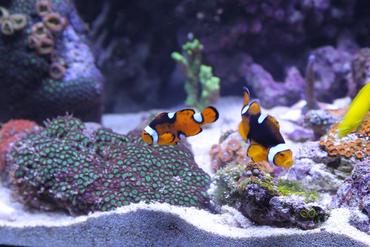GUIDE FOR KEEPING ANEMONES IN A REEF TANK

Updated
Keeping anemones in a reef tank can be a challenge if you are not fully prepared. Read more to learn what is required to successfully keep anemones.
Cultivating a reef tank can be quite a challenge because it requires you to maintain very specific water parameters. In order to keep all of your reef inhabitants healthy, you also need to follow strict feeding guidelines to keep your tank inhabitants from starving. One type of reef inhabitant that hobbyists often have difficulty with is the anemone.
Anemones require certain tank conditions including lighting, water flow and oxygen levels in order to thrive so if you are not able to provide these conditions, you may not be able to keep anemones in your tank. Below you will find a wealth of information about anemones in general as well as some detailed tips regarding their care. Before you attempt to add an anemone to your tank, read this guide so you will be more prepared for the challenge.
About Anemones
Sea anemones belong to the order Actiniaria – there are four suborders and forty-six different families. These creatures can be described as terrestrial flowers, because that is what they look like with their waving fronds and floating appendages. The anemone is, however, a predatory animal that is related to corals and jellyfish. The basic anatomy of an anemone includes a polyp attached to the underside of a basal disc (an adhesive foot) – a column-shaped body extends from the disc and ends in an oral disc. You are probably familiar with sea anemones in relation to their symbiotic bond with clownfish.
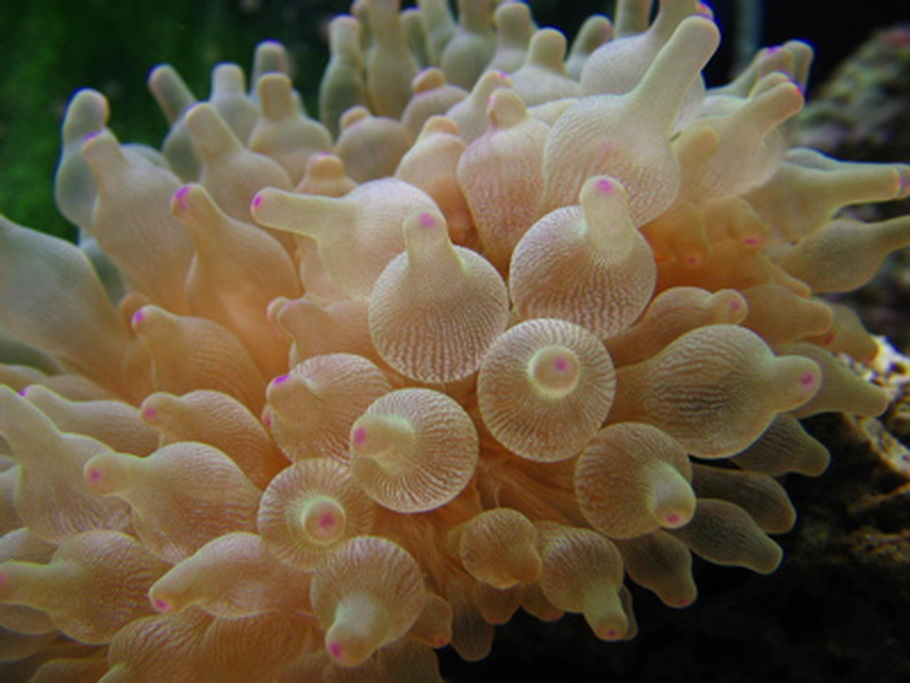
Most sea anemones grow between 1.5 and 3 centimeters in diameter but some are as small as 4 mm around. These creatures may exhibit anywhere from a few dozen to a few hundred tentacles. Sea anemones use an oral disc to capture their prey and they may attach either to substrate or by burrowing into a weaker object like kelp. Anemones are not photosynthetic organisms but they have a symbiotic relationship with certain photosynthetic organisms like single-celled green algae. These algae produce oxygen and glucose as a product of their synthesis, both of which are beneficial to the anemone.
Top Recommended Species
As you’ve already learned, there are many different species of anemone out there. If you are thinking about adding an anemone or two to your tank, consider one of the species listed below:
- Bulb Anemone (Entacmaea quadricolor) – The bulb anemone is one of the most commonly used anemones in the aquarium hobby. This species is named for the bulb-like tip at the end of each tentacle. These anemones typically have brown columns with green, brown, or bright orange tentacles. This species may reproduce asexually in the tank which makes it particularly interesting to keep.
- Adhesive Anemone (Cryptodendrum adhaesivum) – This type of anemone is sometimes sold as the “pizza anemone” because it has rounded, ridged edges that resemble a pizza crust. The adhesive anemone is very unique in appearance but it does have a potent sting – it may not do much harm to humans, but it can be dangerous for certain tank inhabitants.
- Beaded Anemone (Heteractis aurora) – The beaded anemone is named for the beadlike swellings along the length of its tentacles which may be brown, green, or purple in color. This species tends to burrow into sand or gravel instead of anchoring itself to hard substrate and it is a host for seven different anemonefishes. The beaded anemone is fairly easy to keep in the home aquarium as long as a thick bed of sand and adequate illumination are provided.
- Corkscrew Anemone (Macrodactyla doreensis) – The corkscrew anemone has a dull orange or red column with several rows of small bumps running up its length. This species tends to prefer soft substrates, burying its base in sand or mud. When provided with a suitable habitat, the corkscrew anemone is a fairly hardy species.
Tank Requirements and Care
Though specific tank requirements will vary from one species of anemone to another, all species have several general requirements in common. The first is that the water quality of the tank should be very high – the water needs to be clean and free from accumulated debris. Sea anemones require high levels of dissolved oxygen and a stable pH between 8.1 and 8.3. The ideal temperature range for anemones is between 76 and 78°F and the salinity should remain at a stable specific gravity between 1.024 and 1.026. Levels of phosphate, ammonia and nitrite should be as close to 0 as possible and nitrate should be no more than 2 ppm.

Another important aspect of keeping a tank for anemones is achieving the ideal level of water movement and flow. Anemones require some degree of water flow because they absorb oxygen directly from the water and may also gather their food from the water. If the water in the tank does not move, the anemones will not have access to the oxygen and the food that they need to survive. Most species do well in tanks with low to moderate flow, but some species may be more tolerant of higher flow. Lighting is also very important for an anemone tank. As mentioned, anemones are not photosynthetic organisms themselves but they obtain essential nutrients from the photosynthetic algae growing in their tissues. This being the case, you should equip your tank with a full-spectrum light – ideally, one that is designed especially for marine and reef tanks.
Common Mistakes
One of the most dangerous mistakes you can make in adding an anemone to your tank is to do so before the tank has properly matured. While it may only take a few weeks for a tank to cycle – that is, for the nitrogen cycle to become established, it takes longer for a tank to become mature. Only after a tank has been running for 12 months or more can it be considered “matured” in that it is less prone to changes in water parameters and the tank inhabitants have adapted to the tank environment. Anemones generally do not handle changes in water conditions well, so they need to be added to a very stable tank environment.
Another mistake aquarium hobbyists sometimes make is failing to feed their anemones at all. Some hobbyists maintain that anemones are able to get enough food from the water and from the algae growing in their tissues, but you may need to feed your anemones a few times a month to make sure they don’t starve. To accelerate the growth of your anemones, feed them once a week or more often. The ideal foods for anemones are protein-rich foods such as scallops, clams, shrimp and mussels.
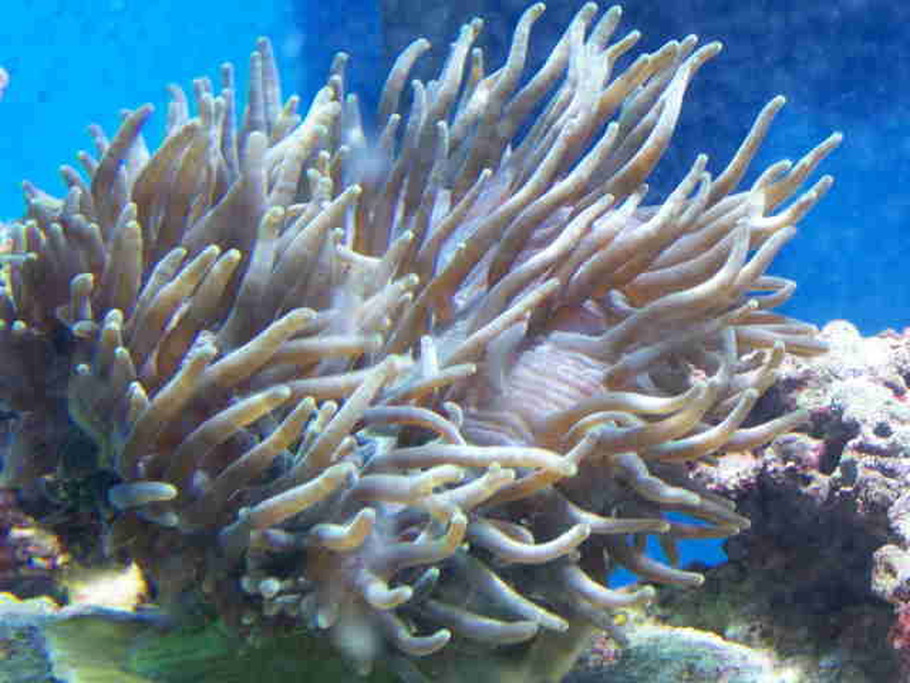
Placing your anemone once you get it home can also be a challenge for aquarium hobbyists. Before you purchase an anemone, research the particular species to find out what location they prefer in the tank. Some species prefer to attach to a crevice in a rock while others bury themselves directly in the substrate. After placing your anemone, it is important that you do not touch it or feed it for one week – the anemone needs a rest period to adjust to the new tank. During this time you should not be alarmed if the anemone moves – it may be moving to a location it prefers.
Summary
No matter what you choose to stock your reef tank with, you need to make sure you perform some basic research first to gain an understanding of these amazing creatures. Anemones in particular require very specific water parameters and if they are not met, they may fail to thrive or they might die completely. Waiting to add an anemone to your tank until it has matured is a good step, but you also need to be sure the tank itself is a good environment in terms of lighting, water quality and water flow. If all of these factors line up appropriately, you are more likely to succeed in keeping an anemone in your tank.
comments powered by Disqus
MOST RECENT ARTICLES
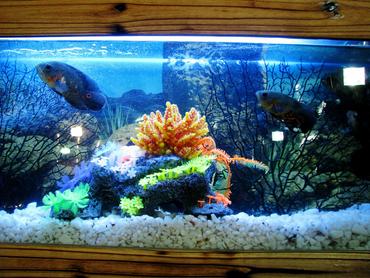
During the summer months, it may become more of a challenge to keep your aquarium temperature stable.
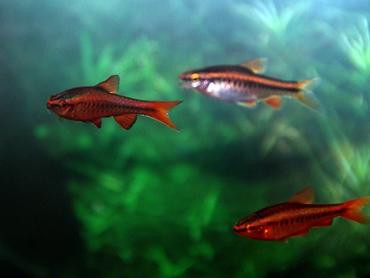
There are many different species of barbs but some of them are better than others for the larger home aquarium.



